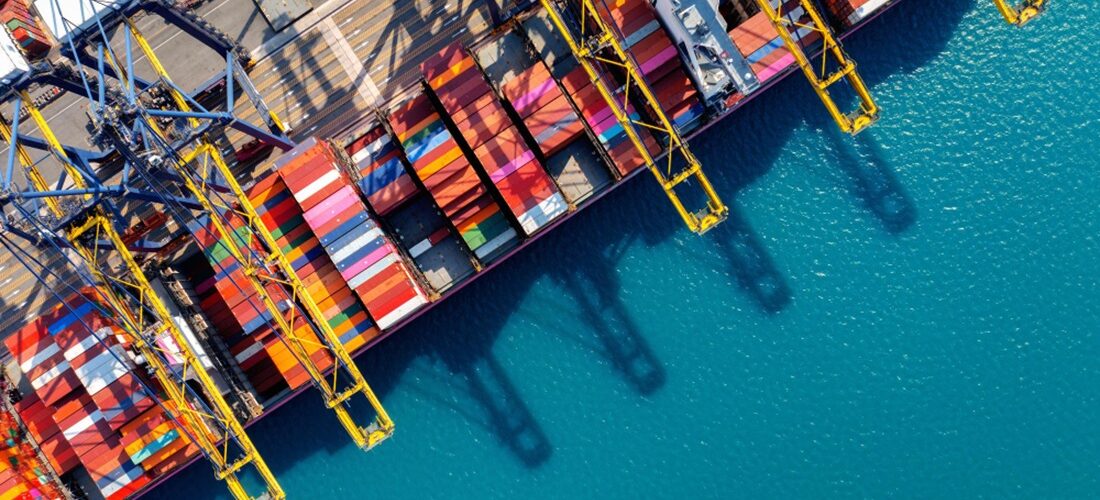
FT: Chinese exporters raise fears of Christmas freight crisis
Jul, 03, 2024 Posted by Gabriel MalheirosWeek 202426
At southern Chinese Christmas tree maker Golden Arts Gifts & Decor, the mood is anything but festive. With freight costs rising due to attacks on Red Sea shipping by Yemen’s Houthi militant group, manager Richard Chan says this year is shaping up to be one of the worst in his more than two decades in the industry.
“We are not talking about making a profit this year. We just need to survive,” Chan says. “The Red Sea crisis has been such a headache.”
The manufacturer, which counts Walmart as a client and exports about 80 per cent of its products to the US and Europe, says the attacks have delayed shipments. As a result, his clients have requested orders be shipped up to a month earlier than usual.
The challenges facing Chan’s factory are mirrored across China, where manufacturers say they are struggling to meet shortened schedules as US and European buyers demand orders be front-loaded to ensure timely delivery for the festive peak season.
The average cost of moving a 40-foot container between Asia and northern Europe at short notice hit $US6855 in late June, up more than 110 per cent in two months and a roughly fivefold increase compared with the same period last year, according to freight market tracker Xeneta.
“Importers all over the world, including US importers, are nervous because of all the uncertainty and the disruption that is going on currently with the Red Sea crisis,” says Simon Heaney, senior manager of container research at maritime consultancy Drewry.
“It seems to be extending and there is no end in sight.”
About 19 per cent of US clients and 26 per cent of European customers surveyed by Drewry in May said they were advancing shipping schedules over fears of supply chain disruptions, Heaney says.
Some worry that planned US tariff increases could further push up freight costs as exporters rush to front-load shipments ahead of the introduction of levies, says Thomas Eisenblatter, executive vice president of global sea freight at Berlin-based freight forwarder Forto. Goods targeted by the US include electric vehicle-related materials, battery parts and solar cells.
Houthi attacks
As the Houthi attacks – which started in response to Israel’s war in Gaza after the October 7 assault by Hamas – enter their ninth month, ships are taking longer routes to avoid the Red Sea. Big ship owners have in recent weeks added vessels and launched new services from China. But these efforts have not completely eased the pressure on Chinese manufacturers.
Michael Lu, president of China-based gift box producer Brothersbox, which exports to clients including Marks and Spencer and has a factory in Dongguan, says it is paying 40 per cent more than last year to ship goods to the West in some cases.
Not all of those costs can be passed on to customers. The factory has begun to operate on weekends to meet some Western clients’ demands for shipments two weeks earlier than expected. The company has had to “recalculate and reassess our production schedules”, says Lu.
Danny Lau, honorary chairman of the Hong Kong Small and Medium Enterprises Association, which includes exporters with factories in mainland China, says many manufacturers have been “hurt” by the tighter deadlines.
“Overtime extra pay in mainland China could be 1.5 to two times higher,” he says. “It would be amazing if manufacturers can still make a profit this year.”
Anny Cheung, senior director at Hong Kong-based Wah Lung Toys, which manufactures in mainland China, says higher shipping costs and lengthened delivery times are also “likely to lead to increased prices for imported goods and potential delays in product availability in the US and Europe” this year.
Carriers’ ability to cash in on high spot prices is limited, however, as the costs of many shipments are tied to long-term deals. This, combined with increased capacity in the shipping industry and higher costs associated with longer export routes, has limited potential profit rises at carriers such as Maersk and CMA CGM.
Some shipping companies are breaking long-term contracts to take advantage of the high spot rates, says one person in the industry.
With the prospect of further US tariffs to come as both Joe Biden and Donald Trump drum up protectionist rhetoric, it is unclear how long the “vicious cycle” will last, says Drewry’s Heaney.
Golden Arts Gifts & Decor’s Chan says the company has to borrow to buy new machinery and accelerate manufacturing to cut production times.
But that has put pressure on profits at a time when it is cutting prices to keep US and European buyers, many of whom are seeking to source goods outside China. “Things have been so difficult,” he says.
Source: Financial Times
Click here to access this story’s original report: https://www.ft.com/content/555d5820-b8d5-4798-921e-0138930c9b88
-
Shipping
Dec, 01, 2023
0
Hapag-Lloyd to implement surcharge over drought on Panama Canal
-
Shipping
Oct, 27, 2023
0
Porto Itapoá Adds Important Shipping Line to Its Services
-
Economy
Dec, 13, 2023
0
Argentina’s Milei trims FX sweetener for grains exports after devaluation
-
Ports and Terminals
May, 17, 2024
0
TCP Surpasses Half-Million TEUs Milestone Over a Month Ahead of 2023 Schedule



